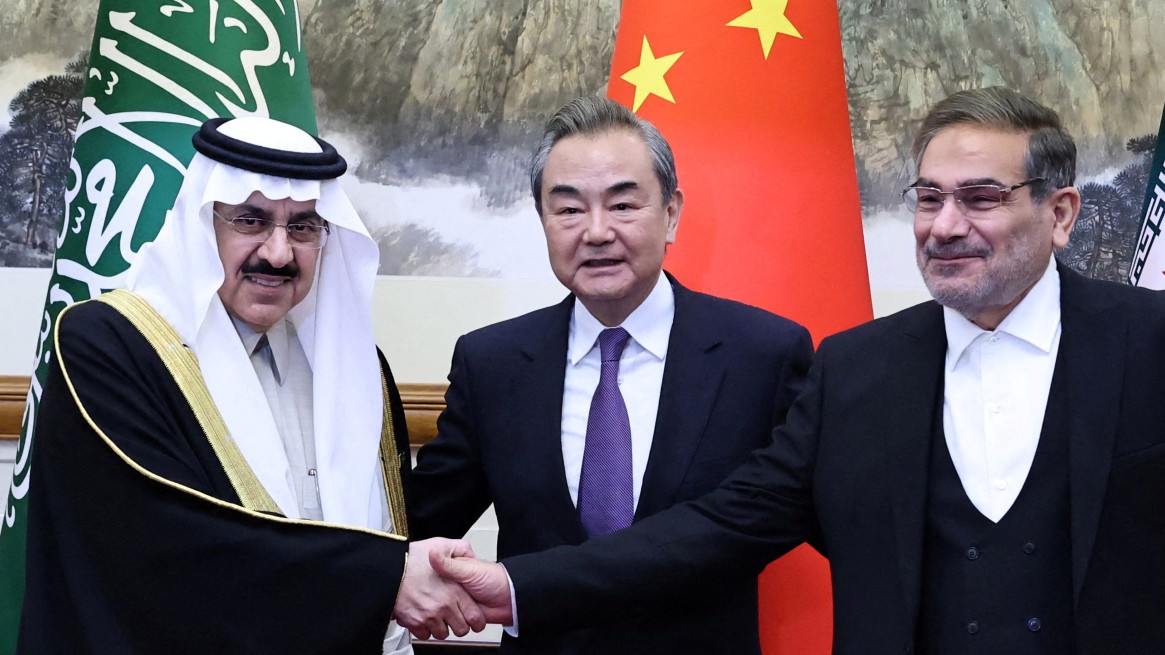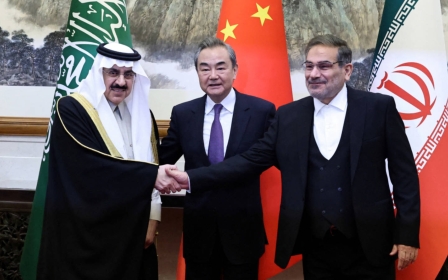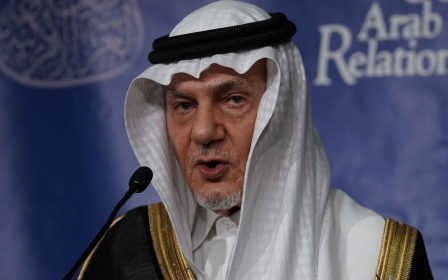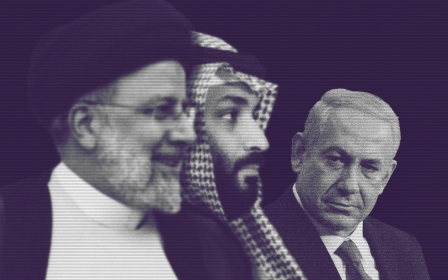Saudi Arabia-Iran: Khamenei's office led talks and agreed to stop arming Houthis, say sources
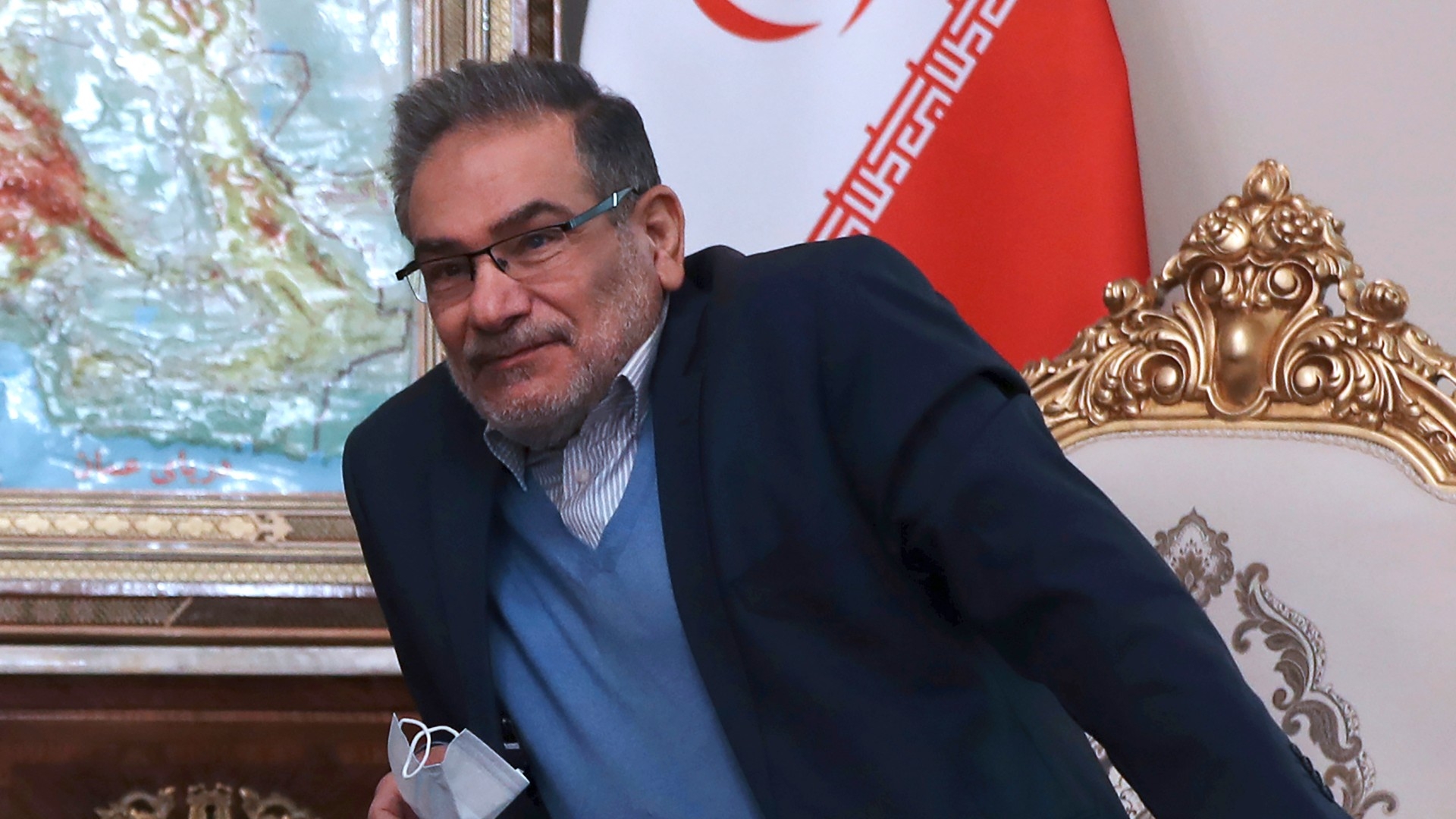
The recent deal between Saudi Arabia and Iran restoring ties was orchestrated and managed by the office of Iran’s Supreme Leader Ayatollah Ali Khamenei, and included a promise to stop arming the Houthis, an Iranian source close to the negotiations told Middle East Eye.
Few in the Middle East and beyond saw the agreement coming when it was announced on 10 March. Riyadh and Tehran have had no official ties since 2016, when the Saudis cut off relations after their embassy in Iran was stormed by protesters angry over the execution of Nimr al-Nimr, a dissident Shia Saudi cleric.
The specifics of the new deal have not yet been disclosed, but according to a joint statement released by Iran, Saudi Arabia and China, which brokered the talks, they have agreed to "respect for the sovereignty of states and the non-interference in internal affairs of states".
New MEE newsletter: Jerusalem Dispatch
Sign up to get the latest insights and analysis on Israel-Palestine, alongside Turkey Unpacked and other MEE newsletters
According to the Iranian source, the deal is made up of 24 points and began to be cooked up when Iranian President Ebrahim Raisi went to China on 13 February.
“When President Raisi recently visited China, he conveyed the supreme leader’s message about talks with Saudi Arabia, and it was after that the talks entered a serious phase,” the source said.
“The Chinese officials, meanwhile, expressed their dissatisfaction with Iran's foreign policy approach, stating that they could no longer support Tehran if such a situation continued to exist.”
According to the source, the Chinese then invited Iran and Saudi Arabia to Beijing - not for negotiations, but to resolve their issues fully.
The source emphasised that the talks on the Iranian side were entirely in the hands of the supreme leader's office, and Ali Shamkhani was also tasked to lead the negotiations as he is both the representative of Khamenei in the Supreme National Security Council, and an ethnic Arab.
Another Iranian source also confirmed that the talks were not handled by the government of President Raisi.
According to a third Iranian source, the talks between Iran and Saudi officials in Iraq and Oman had reached a dead end, especially in the past few months.
The source added that along with Shamkhani, Amir Saeid Iravani, the former deputy head of the intelligence ministry and current ambassador to the UN, who is known well by the Saudis, was present in the talks.
Resolving disagreements
Sources told MEE that the Saudi and Iranian representatives were keen to be clear about their intentions across the five days of discussions and wanted to finally resolve their disagreements.
“The Saudis said: ‘We are focused on our economic development and don’t want any conflict. We expect you not to have anything to do with Yemen and we will do the same about Iraq and Syria’,” the first source recalled.
The source added that the 24-point plan includes Iran ceasing military support for Yemen’s Houthi movement, a promise previously reported in the Wall Street Journal from US and Saudi sources.
He also claimed Saudi Arabia would stop backing Iran International, a Persian TV station that is vehemently critical of the Iranian authorities and has given the recent anti-establishment protests in Iran wide coverage.
Iran International denies it is backed by Saudi Arabia, saying it is owned by Volant Media UK Ltd, a private limited company based in London. It says its shareholders are private individuals from several countries.
'The Saudis said: "We are focused on our economic development and don’t want any conflict"'
- Iranian source close to the negotiations
In addition, the two sides agreed to allow Iranians to perform Umrah and Hajj and Saudi pilgrims to visit the city of Mashhad, which hosts the holy shrine of the eighth Shia imam.
The Saudis also disclaimed any support for the Mojahedin-e-Khalq (MEK), an exiled Iranian opposition organisation that has previously been listed as a terror group by the US and UK, and pledged not to support it in the future.
The new deal is a significant breakthrough for both countries and the Middle East as a whole, and is expected to have wide ramifications. It reveals the growing foreign policy role now held by the supreme leader’s office and the Supreme National Security Council, whose decisions are always rubber-stamped by Khamenei.
Notably, Shamkhani visited Saudi ally the UAE on Thursday and met top officials in Abu Dhabi. Alongside the Emirati national security advisor, Tahnoun bin Zayed Al Nahyan, Shamkhani described the trip as “a meaningful beginning for both countries entering a new phase of ties”.
“In order to overcome the existing challenges, the continuation of which is not in the interest of any country in the region, cooperation and convergence should replace hostility and divergence,” Shamkhani said in his meeting with Tahnoun.
Middle East Eye delivers independent and unrivalled coverage and analysis of the Middle East, North Africa and beyond. To learn more about republishing this content and the associated fees, please fill out this form. More about MEE can be found here.


